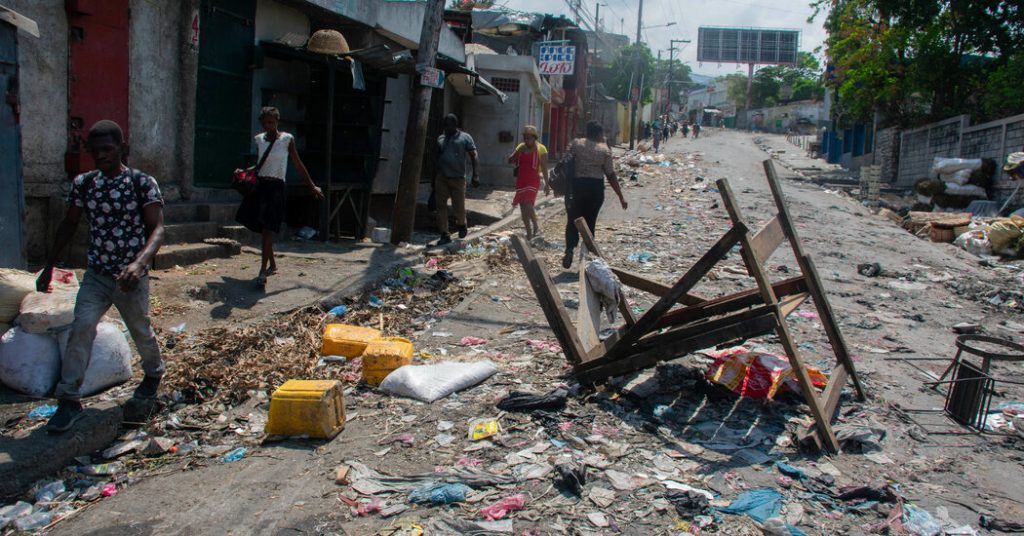In an effort to bring stability to Haiti amidst escalating gang violence and a humanitarian crisis, a transitional ruling council was established. The council’s formation, announced in a state-run bulletin, followed the resignation of Prime Minister Ariel Henry due to pressure from gangs that prevent his return to the country. The council is responsible for appointing an acting prime minister to lead a new government and paving the way for the election of a new president. The regional Caribbean Community bloc, CARICOM, along with the United States, France, and Canada, played a role in finalizing the establishment of the council after it became apparent that Henry could not effectively govern Haiti.
The council includes members from various political parties, the private sector, civil society, the Haitian diaspora, and religious leaders. They have agreed to back the deployment of a multinational force led by Kenya to tackle the armed gangs that have controlled much of the capital, Port-au-Prince, since February. However, there are concerns about the council’s ability to govern in an environment marked by widespread insecurity, especially given threats issued by some gang leaders against those who support the new government. Despite these challenges, many view the council’s formation as a positive step towards addressing the crisis in Haiti.
The legitimacy of the council has been questioned by some Haitians, while protesters attempted to prevent the official announcement from being published. The council will need to be sworn in at the National Palace amid tensions with gang members and the police. The multinational security force meant to combat the gangs is currently lacking funding, although the Biden administration has pledged financial support. U.S. Representative Sheila Cherfilus-McCormick emphasized the urgency of finding a solution to the crisis in Haiti, underscoring the importance of the security mission to restore stability.
The United Nations has reported over 1,500 deaths in Haiti this year, attributing them to a deteriorating situation in the country characterized by corruption, impunity, poor governance, and escalating gang violence. This has led to a collapse of state institutions, shortages of food and fuel, and widespread insecurity. The World Food Program has warned that its stocks in Haiti may run out by the end of the month, exacerbating the food insecurity crisis. The population is in urgent need of assistance, with the situation described as the worst humanitarian crisis in Haiti.
The Biden administration pushed for the establishment of the transition council, coinciding with the arrival of a new U.S. ambassador to Haiti. The ambassador emphasized the need for elected officials who are accountable to the people and acknowledged the challenges facing the Haitian population. As the country grapples with a complex crisis, both domestic and international efforts are needed to address widespread insecurity, violence, and humanitarian needs. The population is in dire need of leadership and effective governance to navigate through this challenging time.
Haiti’s situation calls for immediate action to address the ongoing crisis, which has left the country in a state of instability and uncertainty. The establishment of the council and the multinational security force are steps in the right direction, but more support and resources are needed to effectively tackle the complex challenges facing the country. It is essential for political leaders to prioritize the needs of the population and work together to restore stability, address humanitarian crises, and rebuild institutional capacity. The international community must also play a crucial role in supporting Haiti during this critical time.


